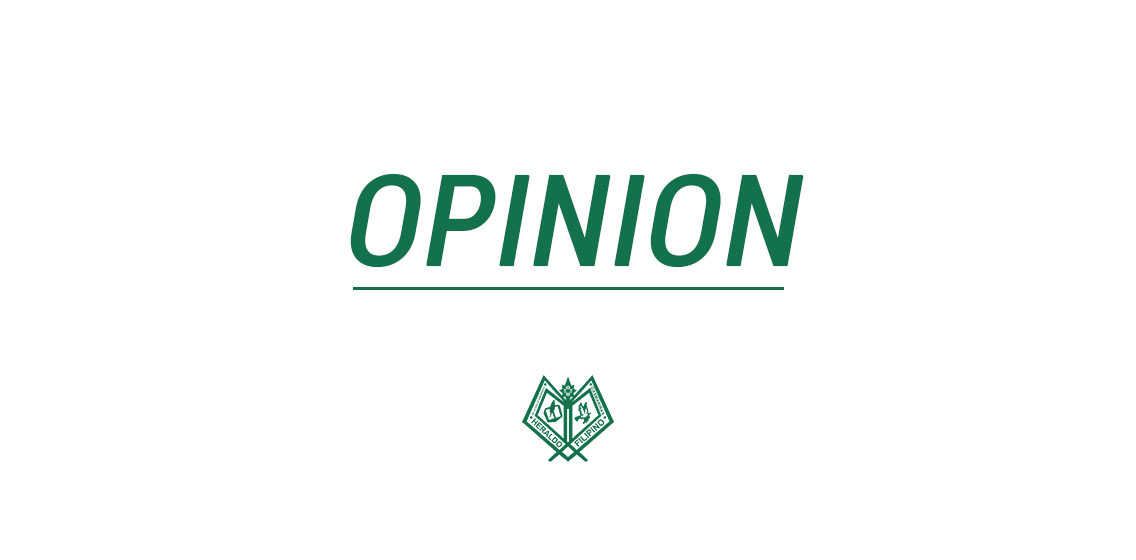Awareness at a crucial time
You log in to Facebook to post an update about yourself and to watch how your friends are doing. You scroll through your newsfeed, reading and watching funny posts, and even repeating them by sharing it to others. There you type your reaction and tag people who you know can relate, then you wait until they were notified, and you count the likes and eagerly respond to comments.
Then you sign in to Twitter, only to do the same thing. You quote and retweet inspirational quotes and tweet trending hugot lines. Doesn’t it feel good when someone or when many of your followers click the favorite button on your post? Wasn’t it gratifying that they agreed, or that they liked what you said?
For a while, you use social media as merely to express yourself. A utility for self-gratification and entertainment. It doesn’t take long before older generations misjudge you for being vain and self-centered. Put it this way, they say, what if you use the same utility to express not your disappointment with your favorite band’s haters, but with socially relevant issues? What if you participate in critical dialogues rather than linger in the comfort of the mainstream?
They thought they could teach you how to use technology better. They thought they could teach you to be better than what your generation is known for.
Until they see you out on the ground, raising cardboards and breaking silence all by yourself. Until they watch you wear the color of resistance against oppression and injustice and inequality. Until they stare with their mouths gaping open at your 1,000 words of opinion on your feed—whether anti or pro—they watch as you show them you can do it. That you know how to conquer both the digital and the real world you were born in. That you know more than to share funny posts and to tweet heartbreaking lyrics.
And when you’ve proven to them that you can do so much more, they ask, what were you doing there getting involved?
***
It might be too late to argue with this issue about our generation—the millennials who were born in a “narcissistic, self-referential world of stimuli with near narcotic-effects,” as described by the Pontifical Council’s document about Ethics in Communications. The same millennials who, when they finally voiced out their thoughts on the fateful event of Marcos’ burial at the Libingan ng mga Bayani (LNMB), were called to “back-off” or questioned, “Anong kinalaman niyo, e hindi pa naman kayo buhay noong Martial Law?”
It is true that our generation has been born in a world of technological advances that made life easier and more accessible. The Internet and the social media has contributed a lot to how the world has changed and become more connected than ever. Its feature of being instantaneous and real time has opened new ways of shared meaning and understanding, or of communication. That information is exchanged in different parts of the world simultaneously. The exact reason which also gave birth to many challenges—digital divide, fake news, trolls, cyberbullying, virtual pornography, identity theft, etc.
With so much information ready to get absorbed every day, how can such young minds deliver what the society demands of them right away? It might be safe to say that we were born in a disruptive world, and therefore our thoughts and actions are disruptive in its own way. But growth should not be taken out of consideration. Only the technology can work in an instant, but not development and maturity. We can react about the cuteness of a kitten and post it with emojis of different shades of hearts, but that doesn’t mean we can care less about extra-judicial killings (EJK) and rape culture.
At a time when so many things are happening—Duterte, Marcos’ burial at LNMB, EJK, De Lima’s scandal, terrorist attacks, Syria, bombings in Davao, earthquakes, rice importation—as I log in to my account, I see how my feed has been bombarded with these kind of news shared by my own friends with their reactions, thoughts, and arguments attached to it. At some point I thought, has the world gone terribly wrong, or have we just reached the point of active social awareness?
Indeed, this is not the time when the world has gone terribly wrong, but the moment of growth—when the millennials engage in topics that involve their future, the age to exercise the capabilities of the digital world to build a better world and improve quality of life. It is not upon the older generations to look down on us, nor to conclude a little too early for our time. It is not upon anyone’s consent to choose what we can fight for or agree with—simply because this is the point of transition, the point of change—our chance, our time.




